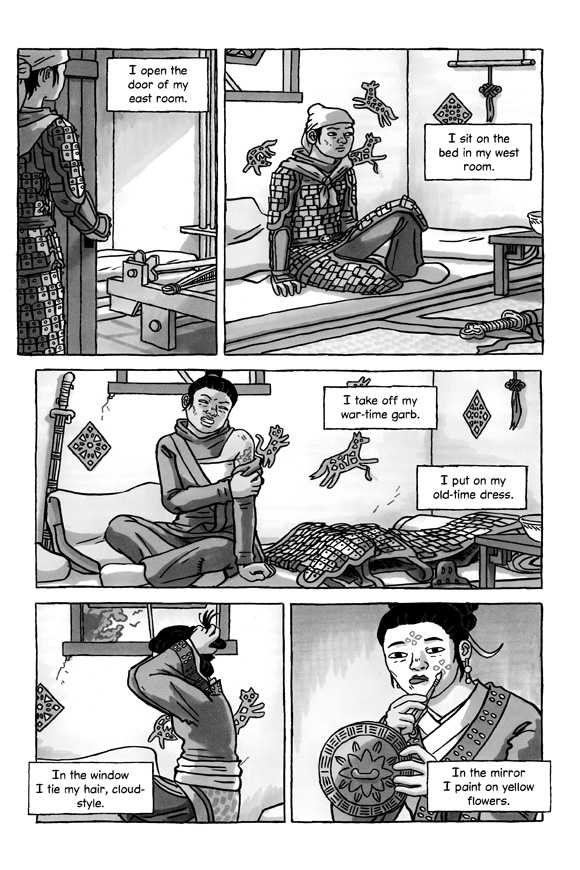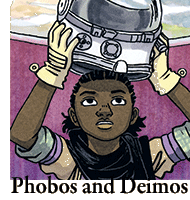The Ballad of Mulan 10
Chapter: The Ballad of Mulan
I know that during the Han Dynasty, life was lived on the floor and chairs weren’t a thing, much like in traditional Japanese culture. I know that by the Tang Dynasty, houses would have been full of furniture. As for the period in between here, ehhhh, I’m kind of guessing? Maybe the Hua household is just old-fashioned.








Dunno if it’s the original text or your translation, but this last page has the feeling of a combat veteran trying to calm the demons of her PTSD by reciting the simplified actions of her real-world life. If it’s you, good job on making a thousand-year-old poem relatable to modern audiences. If it’s the text, holy crap this guy had some advanced knowledge of psychological trauma issues and behavioral treatments. Either way, this is a world=beating page.
This is all textual from the poem. The only text I’ve added that isn’t word for word from the original (via my translation) is the occasional speech bubble in Chinese.
Yeah, though, even as a person with no direct knowledge of what it’s like to be in a war and almost no indirect knowledge, the authenticity of this poem is one of the main things I’ve noticed about it. Given that it was written well before movies, TV, or novels, when the only popular entertainment would’ve been heavily stylized plays or songs or poems, or oral stories, I can only believe the author had REAL personal experience of war to draw upon. The descriptions of the chaos of battle, of hundreds of skirmishes running together in the memory, of the empty feeling waiting for the next battle, the exhaustion, thinking only of home, and that a third of the story is about the trauma of coming home, I can’t believe these were made up from nothing.
I wish I could take credit for that level of insight.